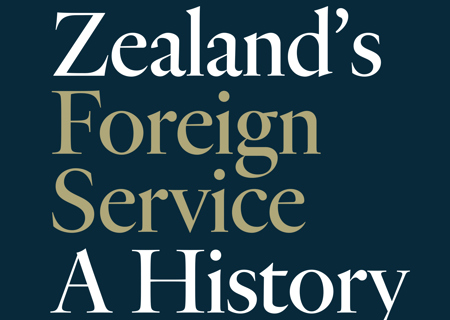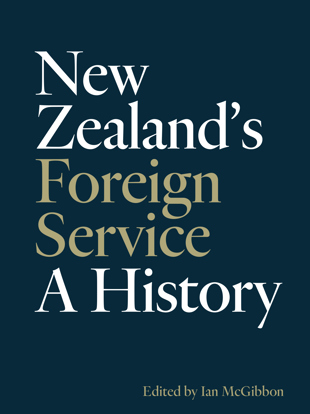Nevil Gibson has reviewed Ian McGibbon’s New Zealand’s Foreign Service: A history for National Business Review.
He writes:
‘Prime Minister Jacinda Ardern’s high-profile global diplomacy in recent weeks prompted some to perceive fundamental changes in foreign policy. These were based on her invitation to the Nato summit in Madrid, forgoing the Commonwealth Heads of Government meeting in Rwanda, the signing of a free market deal with the European Union, another mission to Australia, and attendance at the past week’s Pacific Forum.
This level of activity was to be expected after a two-year hiatus, during which New Zealand was closed to the world. The commentary suggested a change in emphasis, with closer military and political ties to the US and Western allies to resist Russia’s invasion of Ukraine, and a more critical stance toward China for its backing of Russia and growing influence in the Pacific.
Attitudes hardened toward the UN’s failure to condemn the Ukraine invasion and the use of the Security Council’s veto by Russia and China to ensure this outcome.
Among the academic commentators, Otago’s Professor Robert Patman and Victoria’s Geoffrey Miller have offered insights. Miller explains Ardern’s apparent embrace of a pro-Western stance despite her rejection of an ideologically polarised world between the democracies and authoritarian states.
He likened her brief speech at Madrid to David Lange’s foreign policy of the 1980s, when the anti-nuclear stance turned off allies such as the US and UK. Now that Nato was widening its European remit to include security threats from China, Miller noted Ardern’s lack of direct references in a separate speech at Chatham House, a London think tank.
China buys a third of New Zealand’s exports, including dairy and meat that has limited access to US and European markets, meaning Ardern has no reason to hope its military support for the West will be repaid in economic benefits.
Patman sees no change in New Zealand’s strategy of supporting the West against authoritarian states that flagrantly breach an international rules-based order, while also rejecting “the view that any great power should enjoy exceptional rights and privileges in the 21st century”. Defeat of Putin was critical, as it would curb any Chinese plans to annex Taiwan.
None of these issues is new but historical context is available in New Zealand’s Foreign Service: A History, a 570-page volume edited by Ian McGibbon, who has written some 20 books on diplomatic and military topics.’
Read the full review here.


